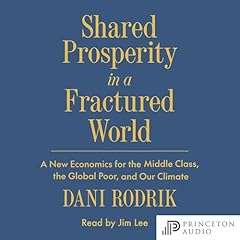
The Narrow Corridor
States, Societies, and the Fate of Liberty
No se pudo agregar al carrito
Solo puedes tener X títulos en el carrito para realizar el pago.
Add to Cart failed.
Por favor prueba de nuevo más tarde
Error al Agregar a Lista de Deseos.
Por favor prueba de nuevo más tarde
Error al eliminar de la lista de deseos.
Por favor prueba de nuevo más tarde
Error al añadir a tu biblioteca
Por favor intenta de nuevo
Error al seguir el podcast
Intenta nuevamente
Error al dejar de seguir el podcast
Intenta nuevamente
$0.00 por los primeros 30 días
POR TIEMPO LIMITADO
Obtén 3 meses por US$0.99 al mes
La oferta termina el 29 de enero de 2026 11:59pm PT.
 Exclusivo para miembros Prime: ¿Nuevo en Audible? Obtén 2 audiolibros gratis con tu prueba.
Exclusivo para miembros Prime: ¿Nuevo en Audible? Obtén 2 audiolibros gratis con tu prueba.
Solo $0.99 al mes durante los primeros 3 meses de Audible Premium Plus.
1 bestseller o nuevo lanzamiento al mes, tuyo para siempre.
Escucha todo lo que quieras de entre miles de audiolibros, podcasts y Originals incluidos.
Se renueva automáticamente por US$14.95 al mes después de 3 meses. Cancela en cualquier momento.
Elige 1 audiolibro al mes de nuestra inigualable colección.
Acceso ilimitado a nuestro catálogo de más de 150,000 audiolibros y podcasts.
Accede a ofertas y descuentos exclusivos.
Premium Plus se renueva automáticamente por $14.95 al mes después de 30 días. Cancela en cualquier momento.
Compra ahora por $27.00
-
Narrado por:
-
Stephen Graybill
"Why is it so difficult to develop and sustain liberal democracy? The best recent work on this subject comes from a remarkable pair of scholars, Daron Acemoglu and James A. Robinson. In their latest book, The Narrow Corridor, they have answered this question with great insight." —Fareed Zakaria, The Washington Post
In Why Nations Fail, Daron Acemoglu and James A. Robinson argued that countries rise and fall based not on culture, geography, or chance, but on the power of their institutions. In their new book, they build a new theory about liberty and how to achieve it, drawing a wealth of evidence from both current affairs and disparate threads of world history.
Liberty is hardly the "natural" order of things. In most places and at most times, the strong have dominated the weak and human freedom has been quashed by force or by customs and norms. Either states have been too weak to protect individuals from these threats, or states have been too strong for people to protect themselves from despotism. Liberty emerges only when a delicate and precarious balance is struck between state and society.
There is a Western myth that political liberty is a durable construct, arrived at by a process of "enlightenment." This static view is a fantasy, the authors argue. In reality, the corridor to liberty is narrow and stays open only via a fundamental and incessant struggle between state and society: The authors look to the American Civil Rights Movement, Europe’s early and recent history, the Zapotec civilization circa 500 BCE, and Lagos’s efforts to uproot corruption and institute government accountability to illustrate what it takes to get and stay in the corridor. But they also examine Chinese imperial history, colonialism in the Pacific, India’s caste system, Saudi Arabia’s suffocating cage of norms, and the “Paper Leviathan” of many Latin American and African nations to show how countries can drift away from it, and explain the feedback loops that make liberty harder to achieve.
Today we are in the midst of a time of wrenching destabilization. We need liberty more than ever, and yet the corridor to liberty is becoming narrower and more treacherous. The danger on the horizon is not "just" the loss of our political freedom, however grim that is in itself; it is also the disintegration of the prosperity and safety that critically depend on liberty. The opposite of the corridor of liberty is the road to ruin.
Los oyentes también disfrutaron:




















Las personas que vieron esto también vieron:


















Incredible encore
Se ha producido un error. Vuelve a intentarlo dentro de unos minutos.
Excellent
Se ha producido un error. Vuelve a intentarlo dentro de unos minutos.
A Dynamic, Profound, and Global Account of What Democracy Requires to Arise and Persist
Se ha producido un error. Vuelve a intentarlo dentro de unos minutos.
Alas
Se ha producido un error. Vuelve a intentarlo dentro de unos minutos.
The narrow corridor: I enjoyed and learned a lot from Analytical framework, historical examples
Se ha producido un error. Vuelve a intentarlo dentro de unos minutos.


